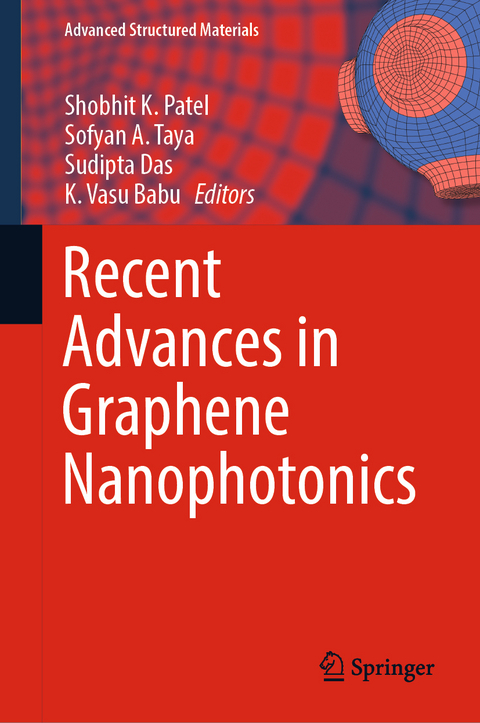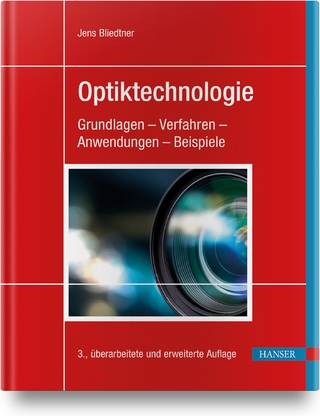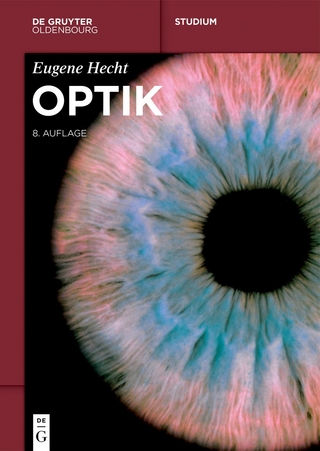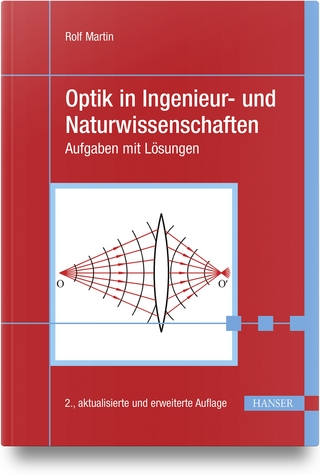
Recent Advances in Graphene Nanophotonics
Springer International Publishing (Verlag)
978-3-031-28941-5 (ISBN)
There are growing advantages to the use of graphene-based nanophotonics in communication, sensing, security, safety, spectroscopy, manufacturing, biomedicine, agriculture, imaging, and other fields. These advantages, as well as the numerous challenges associated with this technology and proposed solutions to these challenges, are summarized in this book. The key objective of the book is to serve as a single-source reference for the rapidly expanding application aspects of the technology of graphene-based nanophotonics, as well as the number of modules required for their successful implementation. This book seeks to give readers a comprehensive understanding of several elements of graphene-based nanophotonics, such as emerging application areas, the design and modelling of sensors, absorbers, optical fiber, encoders, etc. A complete view of the progress and breakthroughs in novel materials for sensing, detecting and encoding technology is presented. The book also emphasizes theconsequences of THz signals on human health, as well as the environmental components of THz. This book will be of tremendous value for those with an interest in electronic engineering, particularly those keeping an eye on this emerging technology.
lt;p>Shobhit K. Patel obtained his Ph.D. in Electronics & Communication Engineering at Charotar University of Science and Technology, Changa, India. He is currently working in the areas of photonics, metamaterial, antennas, optics and artificial intelligence. He has published several research papers in high impact SCI journals. He has also filed 7 Indian patents on different novel researches that he carried out. He received a DST international travel grant in the year 2014 to present a paper at the IEEE APS-URSI symposium in Memphis, TN, USA. He also received a DST International Travel Grant in the year 2017 to present a paper at the PIERS Symposium, NTU, Singapore. He was named on the "top 2% of scientists worldwide identified by Stanford University" list in 2021. He is currently working on many graphene-based projects and has received funding from SERB, DST, for his research. He has been honored with awards for his achievements in his area of research.
Sofyan A. Taya obtained his Ph.D. degree from Ain Shams University, Cairo, Egypt, in 2007. He worked as an assistant professor at the Physics Department of the Islamic University of Gaza in the period 2008-2013. He then became an associate professor of Physics from 2013-2018, and subsequently a full professor of theoretical physics -optoelectronics in the same department. His research interests focus on the fields of integrated Optics for sensor applications, waveguides, ellipsometry, OLEDs, numerical techniques, nonlinear optics, applications of left-handed materials and photonic crystals. He has published about 150 articles in international referred journals. He has participated in many international and local conferences. He was given the Abdul Hameed Shoman Award for Young Arab Researchers, Jordan, in 2012. He was named as one the top 2% of researchers around the world based on a study conducted by the global publishing house Elsevier and Stanford University in the United States in August 2021.
Dr. Sudipta Das earned his Ph.D degree from the University of Kalyani, India. He is currently working as an Associate Professor in the Department of Electronics and Communication Engineering at IMPS College of Engineering and Technology, West Bengal, India. He has been teaching for 13 years and engaging in research for 9 years. His research interests are Microstrip Antennas for microwave, mm-wave and THz communication systems, Flexible antenna design, Filter design, FSS, RFID, microwave components, design and development of graphene-based THz antennas, metamaterials, and graphene-based photonic structures. He has contributed more than 140 research articles to various peer-reviewed international journals and conferences of repute. He has authored one book on 'Microstrip Filter Design,'and edited three books on THz technology entitled "Advances in Terahertz Technology and its Applications", "Terahertz Wireless Communication Components and System Technologies," and " Terahertz Devices, Circuits and Systems,"as well as contributing chapters to several other books. He is associated with a number of different international journals as an Editorial board member. He was given the "Outstanding Teacher in Electronics & Communication Engineering" award by Global Outreach Research and Education Summit Awards in the year 2019. Dr. K. Vasu Babu obtained a B.Tech in Electronics & Communication Engineering from the Jawaharlal Nehru Technological University (JNTUH), Andhra Pradesh, India, in 2006, an M.Tech. in Digital Electronics & Communication Systems from Jawaharlal Nehru Technological University (JNTUK), Andhra Pradesh, India, in 2010, and a Ph.D in MIMO Antennas from Sri Venkateswara University, Tirupati, Andhra Pradesh, India, in 2020. He is working in different domains related to microwave, optical and THz devices, including antennas, absorbers, microwave filter characteristic mode analysis, Dielectric Resonator Antennas, Metamaterial Design, and MIGraphene Based Nanomaterials.- High-Performance Metric of Graphene-based Heterojunction LEDs and PDs in Visible Light Communication Systems.- Variants of Graphene Nanoribbon (GNR) Interconnects for THz Applications.- A Study on Graphene Based Sensor Devices.- Graphene: A Promising Material for Flexible Electronic Devices.- Catalytic Performance of Graphene-based Nanocomposites.- Graphene-based Nanophotonic Biosensors.- An Investigation on Unique Graphene-based THz Antenna.- Two-Dimensional Carbon Nanomaterial-Based Biosensors: Micro-machines for Advancing the Medical Diagnosis.- Micro-Sized Graphene-based UWB Annular Ring Patch Antenna for Short-Range High-Speed Terahertz Wireless Systems.- Surrogate Optimization Assisted Dual Band THz Inverted F Coplanar Graphene Antenna.- Recent Advances in Graphene Oxide- Ferrite Hybrid Framework as Radar Absorbing Material.- Graphene-Based THz Antenna: Rudiments, Fabrication, and Forthcoming Opportunity.- Design of Monopole Ground Graphene Disc Inserted THz Antenna for Future Wireless Systems.- Graphene Based D-shaped Gold Coated Photonic Crystal Fiber for Transformer Oil Moisture Sensing.- Recent Advances in Graphene Based Adsorbents for Fluoride Removal from Groundwater.- Design and Analysis of Fractal-based THz Antenna with Co-axial Feeding Technique for Wireless Applications.- Application of Graphene, its Derivatives, and their Nanocomposites.
| Erscheinungsdatum | 23.05.2023 |
|---|---|
| Reihe/Serie | Advanced Structured Materials |
| Zusatzinfo | VIII, 375 p. 136 illus., 116 illus. in color. |
| Verlagsort | Cham |
| Sprache | englisch |
| Maße | 155 x 235 mm |
| Gewicht | 764 g |
| Themenwelt | Naturwissenschaften ► Physik / Astronomie ► Optik |
| Schlagworte | Absorbers • Biomedical Micro Devices • Graphene • metamaterials • metasurface • Nanocomposites • Nanophotonics and Plasmonics • sensors • THz |
| ISBN-10 | 3-031-28941-2 / 3031289412 |
| ISBN-13 | 978-3-031-28941-5 / 9783031289415 |
| Zustand | Neuware |
| Informationen gemäß Produktsicherheitsverordnung (GPSR) | |
| Haben Sie eine Frage zum Produkt? |
aus dem Bereich


